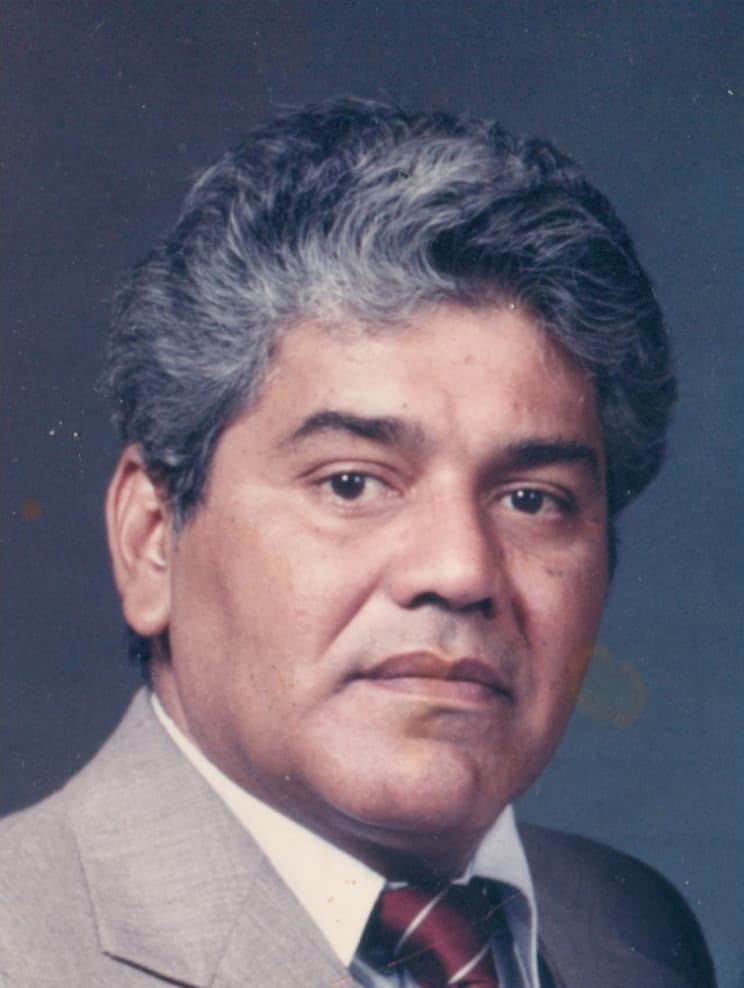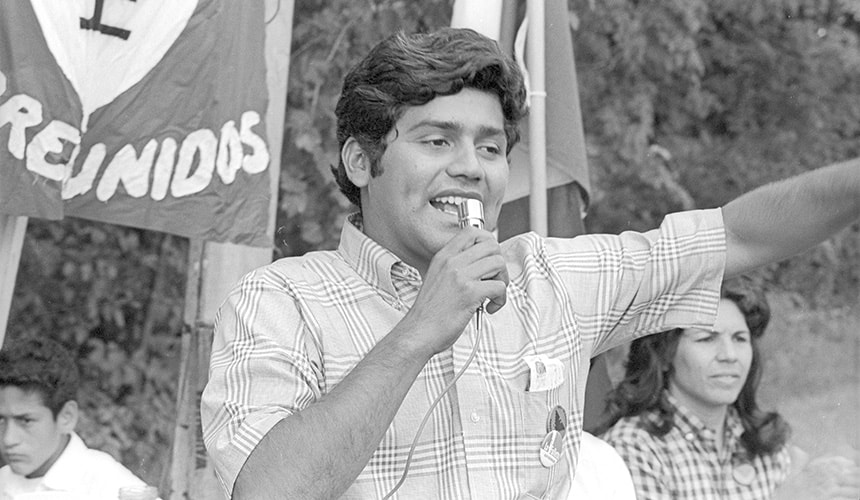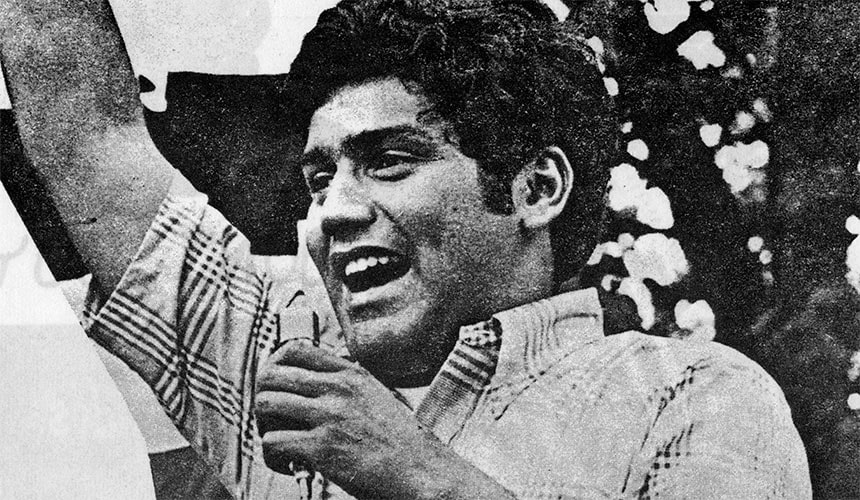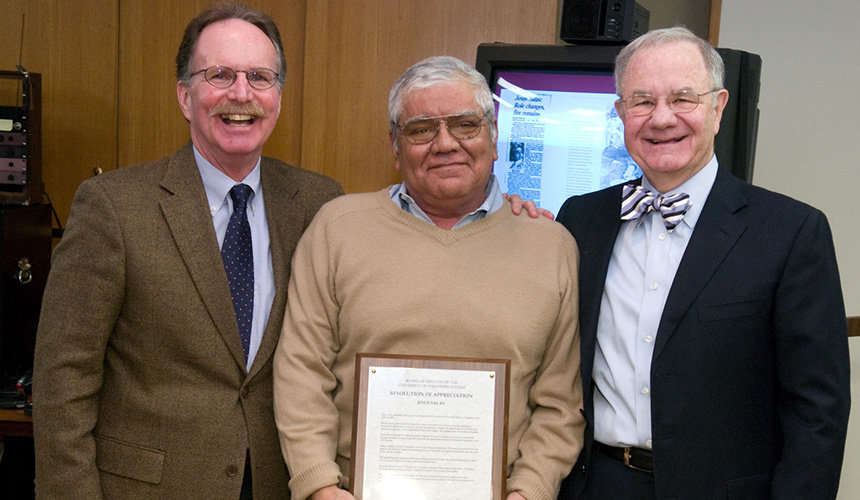Jesus Salas
In It for the Duration
As a labor organizer, as a student, and as an educator, Jesús Salas MA1985 follows one principle, which he learned from Cesar Chavez: “When you start something, you stay for the duration,” Salas says. “It doesn’t matter how long the duration is.”
Throughout his career, from teenage migrant worker to UW System regent, Salas has faced goals that required a long-term effort — in the 1960s, he helped create the labor union Obreros Unidos, and after earning his master’s degree, he helped establish UW–Madison’s Chican@ and Latin@ Studies Program and UW–Milwaukee’s Spanish Speaking Outreach Institute, now called the Roberto Hernandez Center. Persistence has seen him through.
Salas was born in Crystal City, Texas, in a community of Chicano migrant workers. They followed an annual circuit, working on farms and traveling north as the frost receded and south as it advanced again: picking asparagus in Illinois, sugar beets and cucumbers in Wisconsin, and tomatoes in the Lake Michigan region, and then picking cotton in the Mississippi Delta and Texas. Throughout the 1950s, Salas went to school in the communities where his family worked, until his parents bought a café in Wautoma, Wisconsin.

The precarious life of a migrant worker led Salas to value labor rights. In the early 1960s, he began to organize fellow laborers. His initial efforts were frustrating: owners fired workers who joined unions, and county officials harassed organizers. But Salas took inspiration from Chavez, who was then organizing migrant workers in California. He chose to persist.
Eventually, Salas connected with a UW–Madison professor, Elizabeth Brandeis Raushenbush MA1924, PhD1928, an economist with the Institute for Research on Poverty. “She’s a daughter of Louis Brandeis, United States Supreme Court Justice,” Salas says. “She headed the first Poverty Institute Migrant Wage and Working Conditions Study, and she hired me and my brother to go into the camps and introduce a whole core of graduate students from UW–Madison.”
With Raushenbush’s support, Salas not only advanced his understanding of labor issues; he advanced his education. He began taking university classes, and he helped create Obreros Unidos — laborers united — as a union for migrant workers.
“The wage study with Professor Raushenbush really gave me a concrete idea as to specific issues,” he says. “We had a minimum wage, but it wasn’t enforced. We had a housing code, but we didn’t have enough inspectors, and they were reluctant to close the camps down and burden the growers.”
While organizing, Salas completed his bachelor’s and then master’s degrees, a process that took about 20 years.
“Like Cesar Chavez says, when you start something, you stay for the duration,” says Salas.
During his decade on campus, Salas helped the UW establish a Chican@ and Latin@ Studies program. And when he was done, he took his degree in political science and began teaching at Milwaukee Area Technical College, where he helped establish a bilingual teaching program. “It was just a great time, teaching Latino adults basic skills in using their own language.”
“It’s been a long haul,” he says, “But we stay with it.”
Governor Jim Doyle BA1967 appointed Salas to the UW System Board of Regents in 2003, on which he served until 2007, working on the physical planning committee, where he advocated for infrastructure improvements and for continued growth in services for the Latinx community.
In retirement, Salas continues to travel to Crystal City, Texas, and to advocate for migrant workers’ rights.
 68° F
68° F

